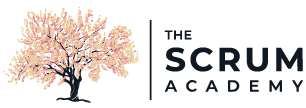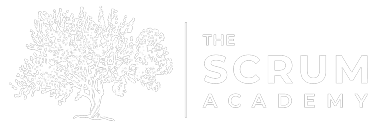
Close-up of an artist's hand painting on a canvas in a workshop, showcasing the creative process and vibrant colors.
Software Development as Art – Interview with Ceneé LaTulippe from Reed Group
 From time-to-time, I encounter participants in my Certified ScrumMaster courses that have significant experience with Scrum. In our practitioner interview for February I want to introduce you to just one of these folks – Ceneé LaTulippee, PMO Manager of Software Development at Reed Group. For whatever reason, these folks never had the opportunity to take a CSM class, are mostly self-taught in Scrum and when they are good, they are scary good. Because of their experience dealing with the day-in and day-out challenges of Scrum they often have astute observations, insightful questions and great stories to share about Scrum with all the other learners.
From time-to-time, I encounter participants in my Certified ScrumMaster courses that have significant experience with Scrum. In our practitioner interview for February I want to introduce you to just one of these folks – Ceneé LaTulippee, PMO Manager of Software Development at Reed Group. For whatever reason, these folks never had the opportunity to take a CSM class, are mostly self-taught in Scrum and when they are good, they are scary good. Because of their experience dealing with the day-in and day-out challenges of Scrum they often have astute observations, insightful questions and great stories to share about Scrum with all the other learners.
Ceneé is just one of those amazing, unsung practitioners who is doing great work, getting great results. I met Ceneé in 2013 and I am so glad to have the opportunity to share her story with you. As a confessed recovering project manager, Ceneé’s story shows that when you focus on the right things – people, outcomes and being yourself – great results will follow.
- Please share with us a little about your experience before doing Scrum. I fell into software development shortly after college while looking for a part-time job to help supplement an ongoing student lifestyle. I work for a small start-up software company in Lincoln, Nebraska. Beginning as a customer service representative, I was the primary user of the software developed by the company. My hunger for intellectual challenges, finding ways to continuously improve quality and increase efficiencies eventually drove me into an Operation Manager position. Simultaneously, we had a couple of major acquisitions of our small tech company by Perot Systems and eventually Dell. My willingness to learn and flexibility to travel 100%, led to international opportunities during which offered me the option to experience and learn from numerous offices around the world. Without intention, I began collecting a toolkit of Lean practices coupled with my desire to properly hear and deliver services to the end-user.
- How did you become a project manager? With an end-user mind set, I began stepping into the technology world as a liaison to communicate product development requirements and usability. My assertiveness got me an offer as an IT project manager. I was taught the skills of project management straight from the pages of the PMBOK. I could manage a large project end-to-end as the PMI poster child, including but not limited to 40+ page charter documents, detailed requirement traceability matrices and rigorous change control that ‘protected’ the scope of a project with big dollar consequences to stakeholders for a minor infraction. I was the queen of process and enforcing consequences for un-alignment.
- You sounded like you were very successful as a PM. What changed for you? Then my natural instincts started to kick-in… Why was I making it so hard to develop a product for the end user? Why was it taking so long to get the product developed? Were my developers happy? Were my clients happy? Or was I just in extreme control of very slow product life cycle? I reflected on the words my mentor gave me when taking my first PM position, she said “Project Management is getting people who don’t work for you to help you meet an end goal – Project Management is an Art.”
- What did that statement “Project Manager is an art” mean for you? It caused me to reflect on my work and I recognized that my learned and applied process felt cold, calculated, long, flat and boring. I asked myself, “Isn’t art supposed to be creative? Freeing? Thought provoking?” After that insight, I started to rebel. I looked for short-cuts, I worked collaboratively with teams and I started breaking the PMBOK rules…. Without knowing it, I was beginning to use Agile practices and software development became Art.
- Explain to us a little about your first Scrum project. Why did you think Scrum could help this effort? What were some of the initial benefits? My first Scrum project was a quiet, back-room experiment with a small team of willing developers led by a development manager who had some knowledge on Agile software development. We broke the work down into smaller chunks and worked collectively as a group to set-up iterative development cycles. The Team learned to collaborate quickly and was very reactive. The initial benefit was the ability to quickly rework a feature that wasn’t perfect without a massive impact to the end schedule. On that project, we felt like we really accomplished something. The developers were happy and proud of their work. By breaking the work into manageable pieces, Scrum helped free individuals to become creative and develop quickly. It felt natural. It felt productive.
- What were your main challenges on that first project? How did it end up? Our primary challenge was executive management buy-in. The software development department was managed by the PMO. In this case specifically, we were managed by an iron-fisted PMP who carried the most recent version of the PMBOK under his arm. Scrum wouldn’t work in that environment until management supported and understood the benefits. After many attempts, it was clear they were not buying-in on Scrum and Agile. I wouldn’t work in the environment after having a taste of Scrum and the overall benefits, so I parted ways in search for better Agile opportunities.
- What do you find appealing about Scrum when you first started? What is appealing about Scrum now? Initially, I loved how lean Scrum was, even without all that paperwork, the work still got done! It was shocking and exciting. I also thoroughly enjoyed the participation from the team. When the team has a say in how the work would get done and when, they became more productive and energetic. Today, I love the flexibility and the energy from a productive Scrum Team. Equally important, is team moral and capability to self-improve. The team driven ongoing improvements challenge the team to be better each time, it is self-motivating and infectious.
- How has Scrum helped you personally? As indicated above, I am a recovering PMP, but my natural inspiration and drive is focused on lean, productive happy teams. Scrum has helped me find that balance.
- How has Scrum helped your Team and your organization? My teams are happy and they are encouraged to look for ways to constantly improve. They feel empowered and that they are a vested stakeholder in their process. Our organization is growing quickly and as a result we are adding more Scrum teams. It’s very exciting!! This growth comes with challenges and opportunities to embrace agile methodologies, extend across multiple scrum teams and a larger department. We have very supportive agile-focused executives that believe in our methodology and the willingness organizationally to make the necessary adjustments to support our growth. I feel fortunate that I am part of this evolution and one of the many Scrum advocates.
- What was the most challenging aspect of doing Scrum for yourself? How did you overcome this? The most challenging aspect is not to take on control/command traits as I was previously taught as a PM. I overcome this by trusting the team to solve appropriately and believe in their approach. I am fortunate to be surrounded by outstanding developers, product owners and QA; I feel relief when they take control and make decisions (similar to the relief of delegating). I love helping the team think creatively on problem solving, provoking new ideas, helping team members be successful and championing scrum framework throughout.
- What was the hardest part of doing Scrum for your organization? In addition to our growth challenge mentioned previously, we have some imperfections we are constantly reviewing and working to resolve (quicker release cycles, automated QA, etc.). I find these to be challenging, but exciting. Some of these big issues will require multiple iterations to resolve, some trial-and-error and just time to improve. While these are the “hard” parts of doing Scrum, they are also what motivates me go to work in the morning.
- Looking back at your experiences and results, what advice would you give to people starting out? Listen to your instincts and what drives you to feel successful. Aligning how you naturally feel and behave with how you work; it makes life enjoyable and effortless for you and people around you. Find a company that is the right fit and encourages behavior that is in-line with your goals.
- What is your favorite book on Scrum and\or Agile? Favorite? Eeeekk…that’s challenging for me to say, because it is dependent on what I am looking for and why I am reading it. If I am looking for strong framework and guidance, I pick-up one of my many Cohn or Schwaber books. I strongly identify with Coaching Agile Teams. If I am looking for creative ways to engage a team I love Gamestorming (reviewed on our website) and Crucial Conversations (also reviewed on our website) is go-to. I have even handed out Carlton’s book, Fourteen Observations of Good Scrum Practice, to my junior ScrumMasters in training.





